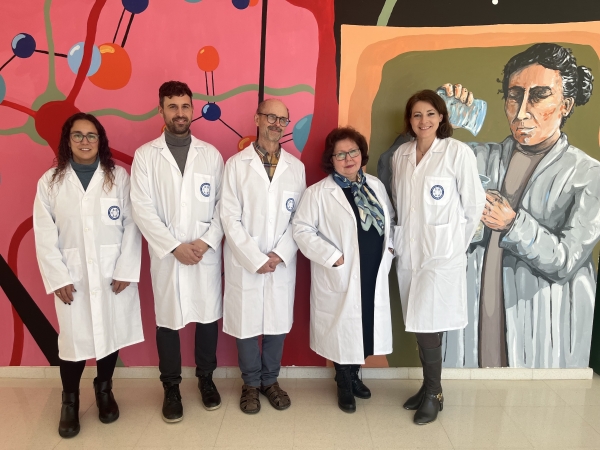A research team from the University of Córdoba (UCO) is participating in a European project aimed at developing pharmaceutical production methods that are cleaner, more efficient, and environmentally friendly.
At a time when the pharmaceutical industry faces the challenge of reducing its environmental footprint without compromising product quality, a European consortium is working to revolutionize the way medicines are manufactured. The project, named SusPharma, seeks to shift away from the traditional production model—based on batch processing, petroleum derivatives, and low automation—toward a greener, digital, and circular approach.
At the University of Córdoba, the research group led by scientist Alina M. Balu is actively involved in developing new catalysts and synthesis techniques that transform biomass and plastic waste into useful compounds for the production of biopolymer precursors, biofuels, and pharmaceuticals.
“The production of medicines is usually very complex, poorly automated, and has a significant environmental impact,” explains Olena Korchuganova, another researcher involved in the UCO project. “Our goal is to offer cleaner and more sustainable alternatives by using renewable raw materials and industrial waste.”
One of these raw materials is furfural, a chemical compound identified as a "platform molecule" in the context of the bioeconomy, commonly found in lignocellulosic waste (especially birch and olive pruning residues). Furfural is one of the building blocks of green chemistry. The Córdoba team has developed an efficient catalyst—made from metallic oxides and metal oxide nanoparticles supported on silica gel or carbon derived from plastic waste—that enables continuous furfural production with lower energy consumption and reduced waste generation.
This innovation not only has pharmaceutical applications in API synthesis, but some furfural-derived products can also be used as fuel additives, improving fuel efficiency and reducing harmful emissions such as nitrogen oxides (NOx) and sulfur oxides (SOx). “In addition to reducing fossil fuel dependence, these compounds enhance fuel properties and combustion,” notes Oleksandr Pokutsa, a collaborator on the project.
Through international and multidisciplinary collaboration, the team has also successfully synthesized furosemide (a diuretic) using a sustainable protocol, and they continue researching ways to expand the range of pharmaceutical compounds derived from furfural (e.g., cytarabine).
Another research line focuses on the practical application of products obtained through pyrolysis of plastic waste, including the production of carbon. This not only gives value to waste, but does so in a commercially viable way. “It's a way to turn one of the most abundant and difficult-to-manage wastes into something useful for industry,” adds the researcher.
The SusPharma project is funded by the European Union through the Horizon Europe program and brings together universities and research centers from Italy, the Netherlands, Belgium, the United Kingdom, Portugal, and Spain. At the UCO, in addition to research staff, key infrastructure, laboratories, and specialized software have been essential in carrying out the initial trials.
The first results have already led to scientific publications and the preparation of a patent. Some of these advances will also be included in a collective book to be published this year. “We’ve completed the first work package and are continuing to move toward new objectives,” says Balu. “Although we've faced unexpected challenges, the overall progress has been very positive.”
In the coming months, the team plans to further refine the catalysts, improve furfural and long-chain alcohol (C5–C8) production yields, and advance the digitization and automation of the processes, in line with the consortium’s broader goals.
Beyond its industrial applications, the project also holds symbolic value for its participants. “I come from a Ukrainian city that has been largely destroyed by war,” shares Korchuganova. “Thanks to the support of Professor Alina Balu and the University of Córdoba, I’ve been able to continue my scientific career. For me, this project is also a way of rebuilding—through science.”
This report is included in the activities carried out in the project "Desarrollo de redes de asesoramiento y gestión de proyectos europeos I+D+i en la UCO" with acronym "DevelOPE", within the framework of grant GPE2023-001243-P financed by MICIU/AEI/10.13039/50110001103


